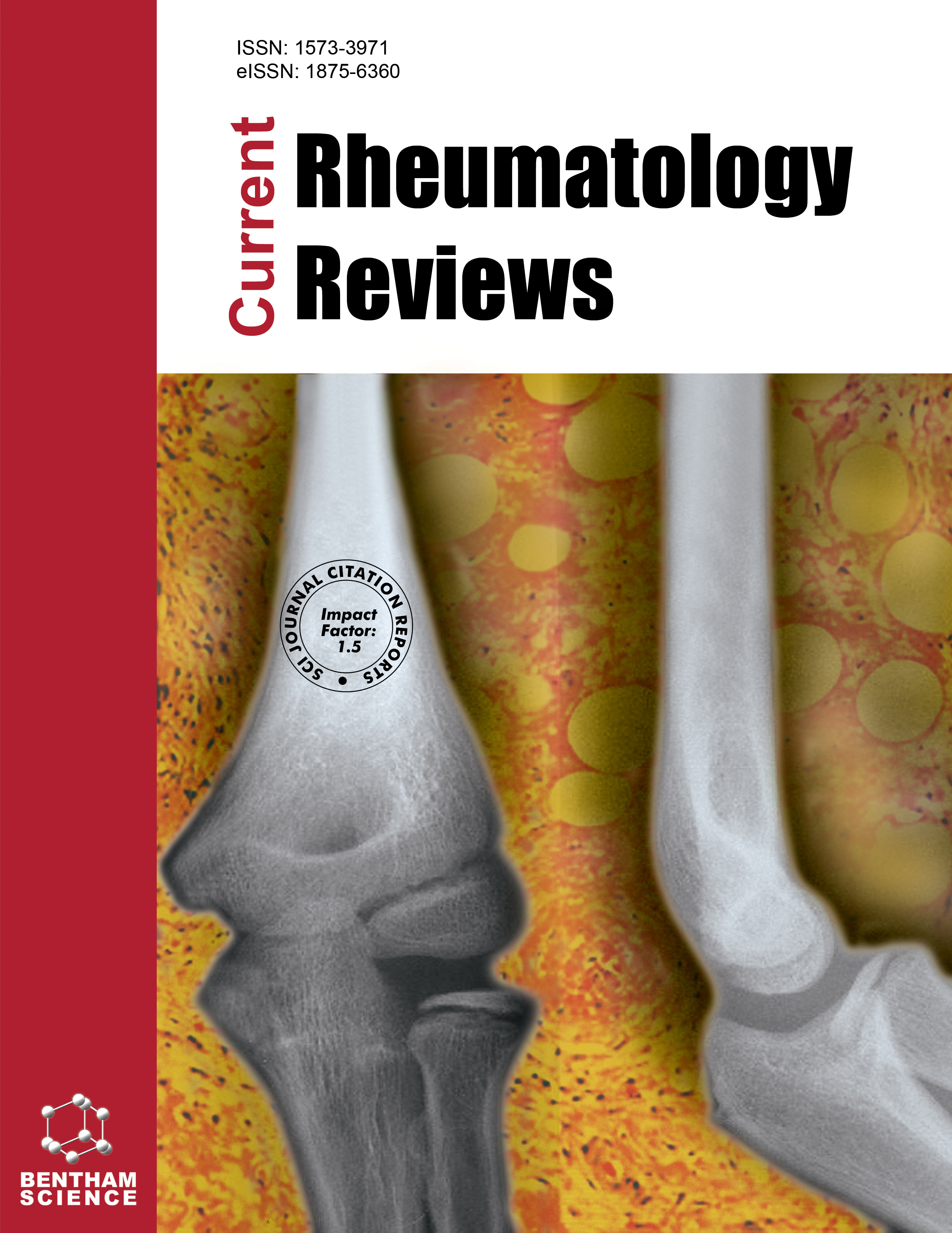-
oa Potential Role of Rebamipide in Osteoclast Differentiation and Mandibular Condylar Cartilage Homeostasis
- Source: Current Rheumatology Reviews, Volume 14, Issue 1, Apr 2018, p. 62 - 69
-
- 01 Apr 2018
Abstract
Background: Temporomandibular joint osteoarthritis (TMJ-OA) is a degenerative disease that involves changes in subchondral bone and progressive degradation of cartilage. Currently, rebamipide, a gastroprotective drug, is administered to protect gastric mucosa and accelerate ulcer healing. Objectives: Recent studies have shown that rebamipide also attenuates cartilage degeneration by suppressing oxidative damage and inducing homeostasis of the extracellular matrix of articular chondrocytes. Regarding the latter, reduced expression of cathepsin K, NFATc1, c-Src, and integrin β3, and increased expression of nuclear factor-kappa B, have been found to be mediated by the transcription factor, receptor activator of nuclear factor kappa-B ligand (RANKL). Methods: Treatment with rebamipide was also found to activate, mitogen-activated protein kinases such as p38, ERK, and JNK to reduce osteoclast differentiation. Taken together, these results strongly indicate that rebamipide mediates inhibitory effects on cartilage degradation and osteoclastogenesis in TMJ-OA. Results and Conclusion: Here, we highlight recent evidence regarding the potential for rebamipide to affect osteoclast differentiation and TMJ-OA pathogenesis. We also discuss the potential role of rebamipide to serve as a new strategy for the treatment of TMJ-OA.


